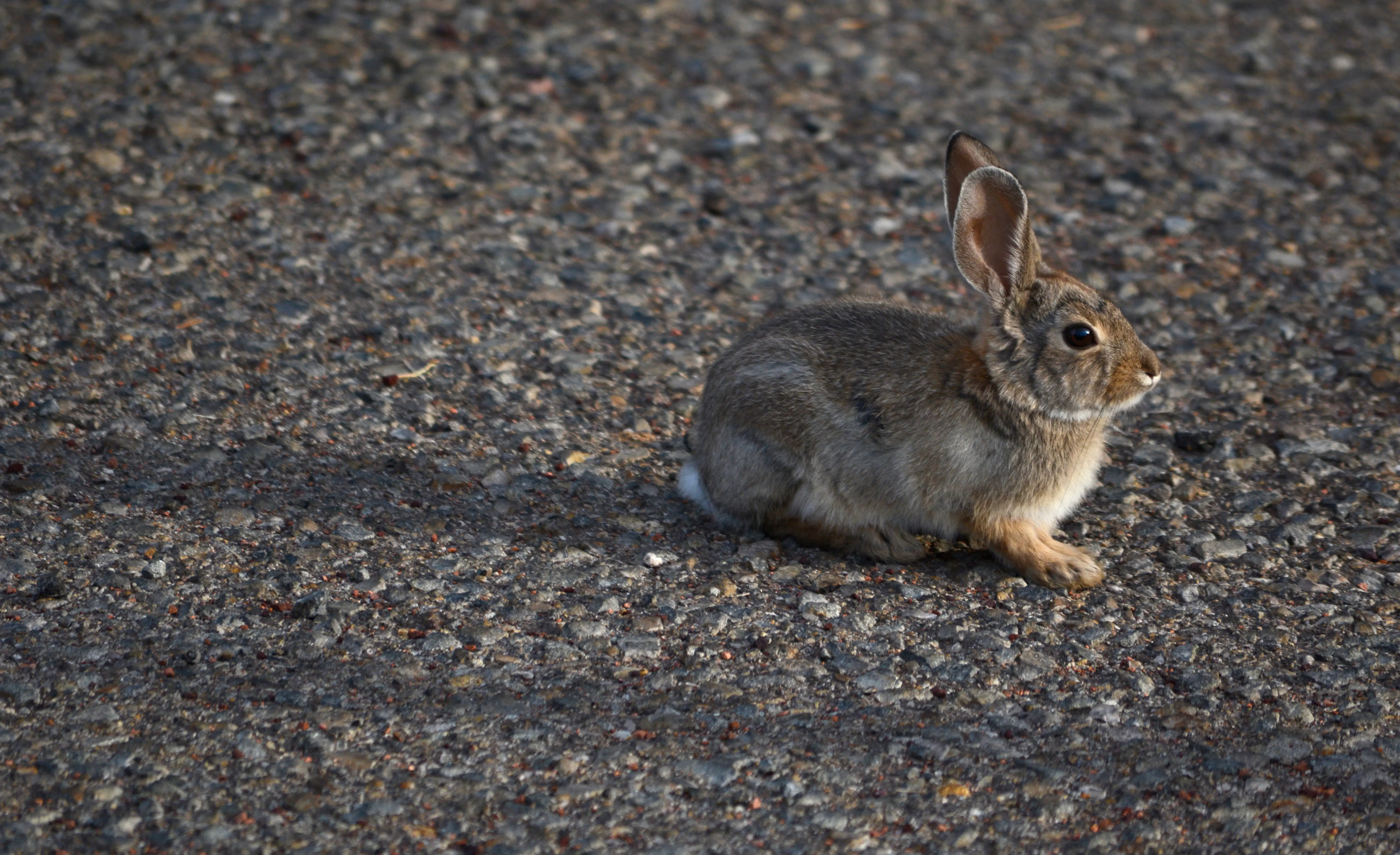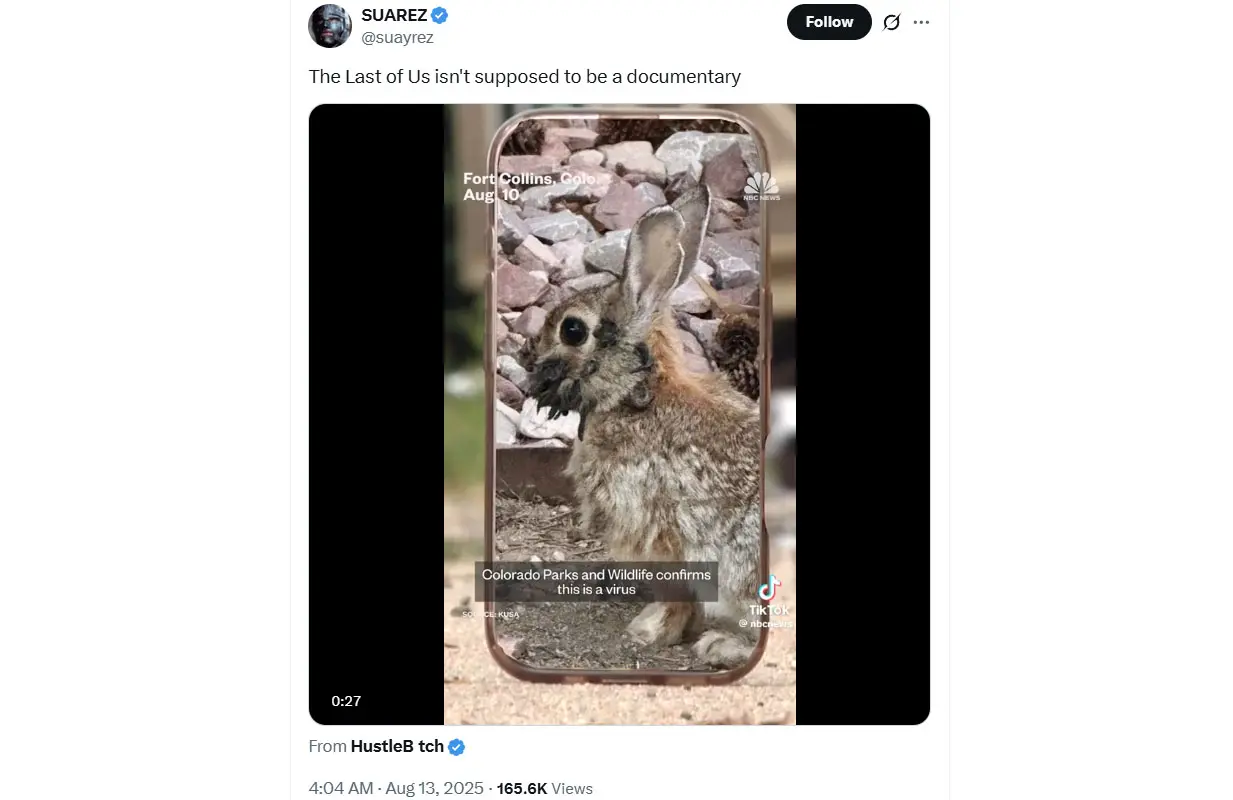"The Last of Us isn't supposed to be a documentary": Netizens react with concern to rabbits with tentacle-like growths spotted in US
-
 A young Desert Cottontail rabbit (Photo by Robert Alexander/Getty Images)
A young Desert Cottontail rabbit (Photo by Robert Alexander/Getty Images)Rabbits with tentacle-like growths have been spotted in Fort Collins, Colorado, sparking concern among netizens. Citing Colorado Parks and Wildlife (CPW), 9NEWS reported on Friday, August 8, 2025, that these animals have black growths protruding from their heads as a result of a viral infection.
They added that it was not dangerous to humans or pets but urged people to avoid approaching or touching the bunnies.
Rabbits in Colorado spotted with tentacle-like growths on their heads from rare virus pic.twitter.com/6KWxbvCYcb
— FearBuck (@FearedBuck) August 12, 2025As pictures of the rabbits went viral, internet users were quick to react. One commented:
"The Last of Us isn't supposed to be a documentary."

Many expressed their horror.
"I don’t mean to be an absolute p*ssy but this may be the most terrifying thing I’ve ever seen. This is worse than any phobia I’ve ever had," one wrote.
"We ain’t making it to 2030," another added.
"pls eradicate this virus for the sake of rabbits everywhere thx," a person noted.
Others compared it to pop culture characters like Venom from Spider-Man or Omen from the Elden Ring.
"is that a venom symbiote," one quipped.
"People going "Last of us" or "Venom", but this is straight up horn growth Omen from Elden Ring," another chimed in.
"Ewwww this made feel disgusting and itchy," a user commented.
The rabbits were infected with Shope papilloma virus (SPV)
Describing the horn-like growth, Fort Collins resident Susan Mansfield told 9NEWS:
"It looks like it was black quills or black toothpicks sticking out all around his or her mouth. I thought he would die off during the winter, but he didn’t. He came back a second year, and it grew."
According to Gizmodo, the bunnies in question have been infected by the Shope papilloma virus (SPV), a cousin to human papillomavirus (HPV). It is commonly called the cottontail papilloma virus due to it usually affecting cottontail rabbits found in the wild in the Midwest. It rarely affects domestic bunnies.
Much like some HPV strains, the SPV can trigger the formation of the growths. Per Unilad, bites from arthropods like mosquitoes and ticks carrying the virus spread the infection rather than direct contact between rabbits. However, it can spread through direct contact with infected bodily fluids. The formations themselves do not carry the virus.
Notably, SPV is not contagious across species and does not affect humans, dogs, or cats.
According to the outlet, once bitten, the infection starts as red, raised spots, which mutate into warty formations. Soon, black tendril-like growths start covering areas near the mouth, cheeks, and eyes. Some can even turn cancerous.
While the growths are mostly benign, the rabbits are likely to starve to death as the formations get larger. It can even affect visibility and hearing.
Per Unilad, experts warn domestic rabbit owners to keep their pets away from pests. However, if infected, the formations can be surgically removed before they turn malignant.
According to Gizmodo, SPV-infected rabbits might have inspired the urban legends of jackalopes and horned rabbits. It is also worth noting that the discovery of SPV in the 1930s helped confirm that certain viruses can trigger cancer.
Scientists have since used it as a model to understand HPV-related cancer and make vaccines for the same.
TOPICS: Rabbits